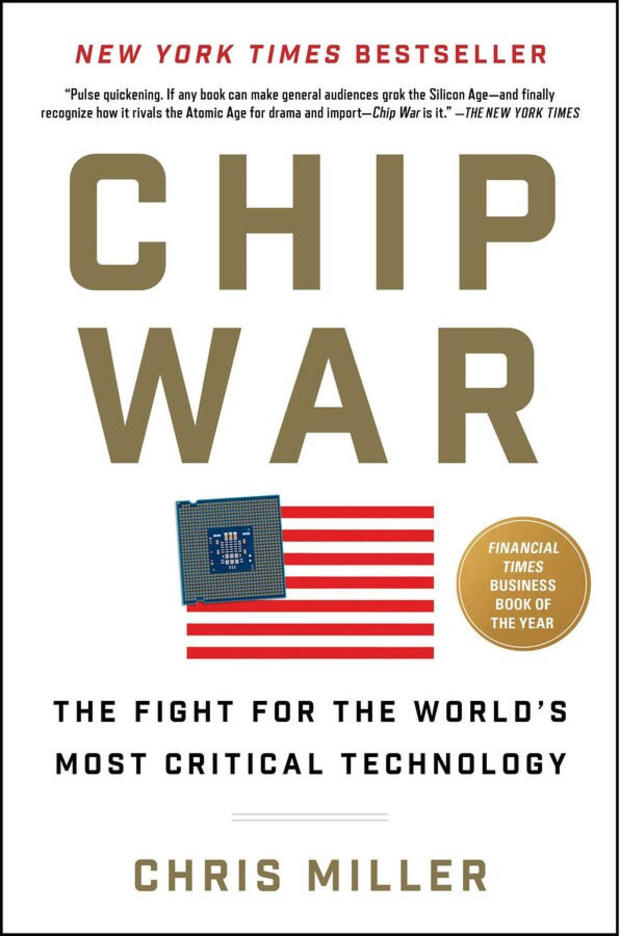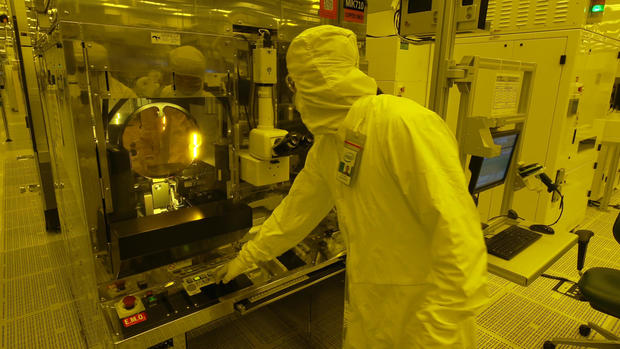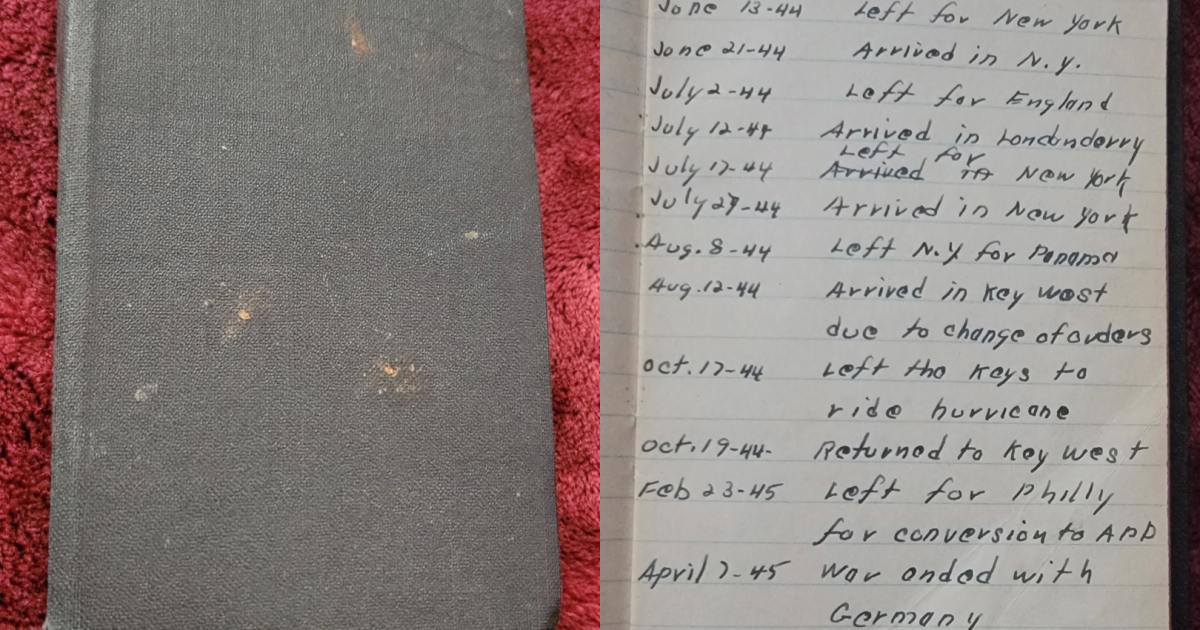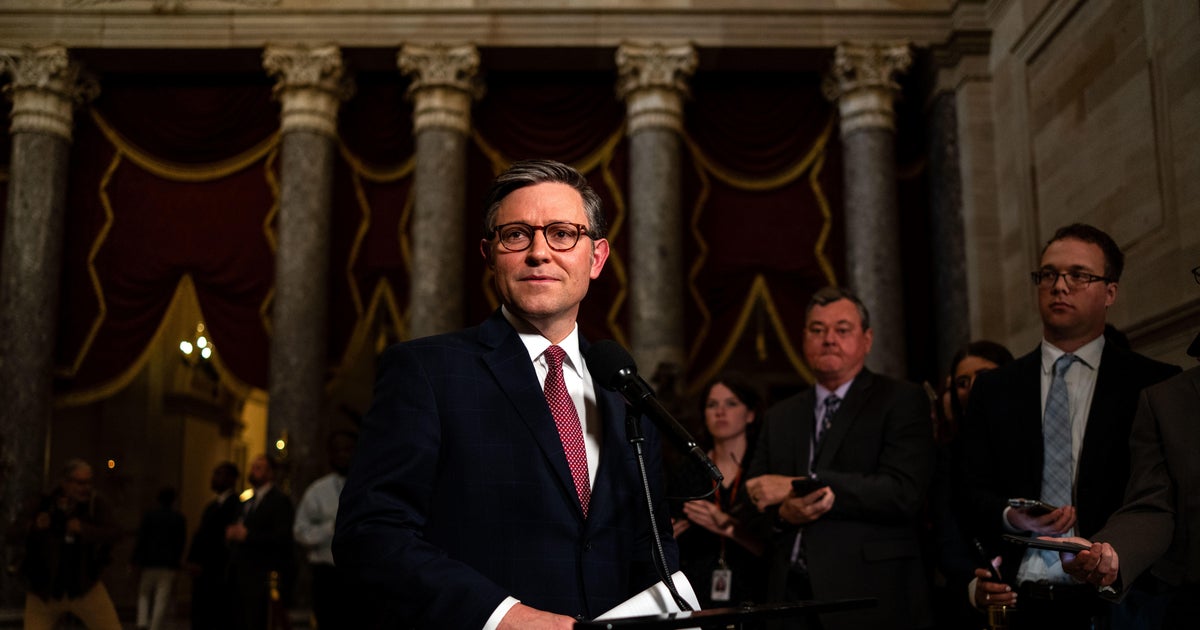The CHIPS Act: Rebuilding America's technological infrastructure
You already know that there are computer chips in your computer and your phone. But you may not realize just how many other things in your life rely on chips. They're also in your clocks, toys, thermostats, and every single thing in your kitchen.
"Our demand for silicon chips is only going to grow as we find new ways to make new devices smarter," said Chris Miller, who teaches at Tuft University's Fletcher School. He is also the author of a book about the chip industry, "Chip War: The Fight for the World's Most Critical Technology" (published by CBS' company, Simon & Schuster).
Most chip manufacturing happens in East Asia. Taiwan manufactures 90 percent of the world's most advanced processors.
Over the last 30 years, the world has put almost all of its silicon eggs into one basket: a single company called the Taiwan Semiconductor Manufacturing Company (TSMC). It's now the world's biggest chip-maker.
Pogue asked, "Doesn't that mean our entire economy is a sitting duck?"
"Well, it's an extraordinary risk," Miller replied.
We learned that the hard way during the pandemic. Miller said, "As people started working from home, they bought new PCs. Companies started upgrading their datacenter infrastructure. Chip companies struggled to keep up."
And remember when car prices went sky-high? The reason was the chip shortage.
Because a typical car contains hundreds of chips, "Just a single delayed component could cause a car to sit in a factory floor unfinished for weeks or even months, as they waited for the chips they needed," Miller said.
But pandemics aren't the only threat to our chip supply. The biggest risk is geopolitics. Miller said, "As tensions between China and Taiwan escalate, there is more and more concern that China could try to disrupt chip supplies out of Taiwan by blockading the island, or even attacking. The economic impact would be felt over many years, and the cost would be measured in the trillions of dollars."
Since the 1990s, the United States' share of global chip-making has dropped from 37% to 12%. Today, American companies like Apple, AMD, nVidia and Qualcomm design their own chips, but they all hire TSMC to make them. TSMC even makes some of the chips for Intel, the American company that pioneered the semiconductor.
Al Thompson, who runs government affairs for Intel, said that the East Asian chip industry flourished thanks to financial help from their governments, offering incentives like cash grants and tax credits. "It really provided an attractive incentive for companies to do more manufacturing in East Asia," he said.
So now, we're in a pickle: Pandemics, natural disasters, or geopolitics could disrupt our supply of chips at any time. Why doesn't our government do something? Well, it has.
The CHIPS Act is a law developed by the Trump administration and signed into law by President Biden last August. "The future of the chip industry is going to be made in America," said Mr. Biden.
Thompson said, "I would dare you to find an issue that had the support from two different presidential administrations and two Congresses that passed with bipartisan margins."
The CHIPS Act could be a huge deal for America, both for our economy and our national security. It includes $13 billion for research and development, $39 billion to build new plants, and $24 billion in tax credits to attract private investors.
As Intel CEO Pat Gelsinger puts it, "This is the most significant piece of industrial policy legislation since World War II."
If it works, this act will spark an American chip-making boom, in massive, precision fabrication plants called "fabs," like the two that Intel is building in Arizona, totaling 650,000 square feet.
Each fab costs a little over $20 billion, according to Keyvan Esfarjani, Intel's global operations director.
Pogue asked, "Is it accurate to say that some of that money came from the CHIPS Act, or will come?"
"That's absolutely our expectation," Esfarjani replied.
One reason fabs are so expensive? They contain some of the most sophisticated equipment on Earth. The air here is a thousand times cleaner than in a surgical room. An eyelash, a speck of dust, or even the wrong color light can ruin these delicate wafers that are cut up, put onto chips, and sent to customers all around the world.
The smaller you etch the circuitry, the faster the chip. "There are billions of transistors into each one of these chips, hundreds of billions of transistors," Esfarjani said.
And how thin are those layers? "Oh, they're at the angstrom levels, at the atom level," he said.
Now, the CHIPS Act isn't popular with everyone. One reason is the fine print: For example, to receive the government's money, a semiconductor company must promise to pay employees a market wage and offer childcare. But Intel's Keyvan Esfarjani said that tech companies have to offer good pay and childcare anyway if they want to attract talent. "None of this bothers us," he said. "In fact, if anything, it's very aligned to how we operate. We want to create an environment that it is very enticing, where we are going to grow the talent."
For professor Chris Miller, the bigger concern is that $52 billion won't be enough: "I think the CHIPS Act is an important turning point, but on its own, it's not going to be enough to revolutionize the chip industry, or to dramatically reduce our dependence on chips manufactured in Taiwan."
But no matter what the critics say, an American fab-building boom is underway.
Intel has broken ground on what could eventually be eight immense factories on 2,000 acres in Ohio. In fact, with the prospect of grants from the CHIPS Act, 14 companies have either announced or broken ground on 22 new chip factories in America, including two more in Arizona being built by our old friends from Taiwan, TSMC. All together, that's $160 billion of spending - and 28,000 new American jobs, not even counting the boom in suppliers, housing, and infrastructure around each plant
Intel's Al Thompson said, "We have a really amazing opportunity as a country to basically regain that manufacturing share, in partnership with the U.S. government, in a way we've never seen before."
For more info:
- "Chip War: The Fight for the World's Most Critical Technology" by Chris Miller (Scribner), in Hardcover, eBook and Audio formats, available via Amazon, Barnes & Noble and Indiebound
- Christopher Miller, associate professor of international history, Tufts University
- Taiwan Semiconductor Manufacturing Company, Hsinchu, Taiwan
- Intel
- Semiconductor Degrees Program at Purdue University
Story produced by Mark Hudspeth. Editor: Lauren Barnello.





